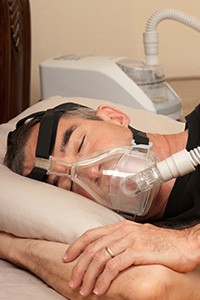
TMJ/TMD
TMD is a disorder that affects the temporomandibular joint (TMJ), or jaw joint, which can cause reoccurring debilitating pain in the jaw if left untreated or misdiagnosed.
The TMJ is the jaw joint that connects the mandible (lower jaw) to the temporal bone of the skull. It assists in the basic opening and closing movements of the jaw and is one of the most intricate joints in our bodies.
Common symptoms of TMD include:
- Clicking/popping in the jaw joints when opening or closing the mouth
- Persistent headaches and facial pain
- Limited ability to open the mouth
- Pain or tenderness in the neck or ear when talking, chewing or opening the mouth wide
Since these symptoms may be a result of other conditions, a thorough examination is needed to receive an accurate diagnosis and to design an efficient treatment plan.
We offer a TMJ exam that evaluates the joint tissue in the "hinge" of the jaw. Possible problems include swelling, deterioration of the joint tissue or damaged joint tissue (which cushions the jaw bones during the opening and closing movement of the mouth). Common pain relievers and cold compresses can provide temporary relief for most cases of TMD.
For more serious cases of TMD, we will recommend alternate treatments. Often, we will suggest using a mouthguard to relieve teeth grinding. In some cases, we will instruct you to use orthodontic appliances or retainers to alleviate discomfort or redirect positioning of the TMJ joint. For the most severe cases of TMD, we may recommend certain invasive procedures.
Snoring Therapy
Snoring affects millions of people of all ages, both male and female. However, snoring is more common among males and people who are overweight, and it typically gets worse with age. In some cases, snoring can be a sign of a serious health condition, such as sleep apnea.
What Causes Snoring?
Snoring is caused by the vibrations of your soft and/or hard tissue palates; these vibrations occur because of increasingly narrow air passages. When air passes through these passages, a "flapping" sound occurs because the tissue is soft in nature. Surgery (to alleviate the snoring) is not always successful, however, because the sound may not originate from the soft palate; the snoring sometimes originates from tissues in the upper airway.
Snoring occurs due to:
- Poor muscle tone of the tongue or throat
- Obstructed nasal passages because of allergies, a sinus infection or a deviated septum
- Bulky throat tissue, specifically children with large adenoids and tonsils
- A soft palate and/or uvula that is too long
Health Risks of Snoring
Snoring not only disrupts your sleep pattern, it also keeps you from getting a good night's rest. Loud snoring may also be a sign of obstructive sleep apnea (OSA). With OSA, breathing repeatedly stops and starts due to blocked air passages. Untreated OSA can increase your risk of strokes, heart attacks, and other health problems.
Loud snorers should always be evaluated by a medical professional to ensure they're not experiencing sleep apnea.